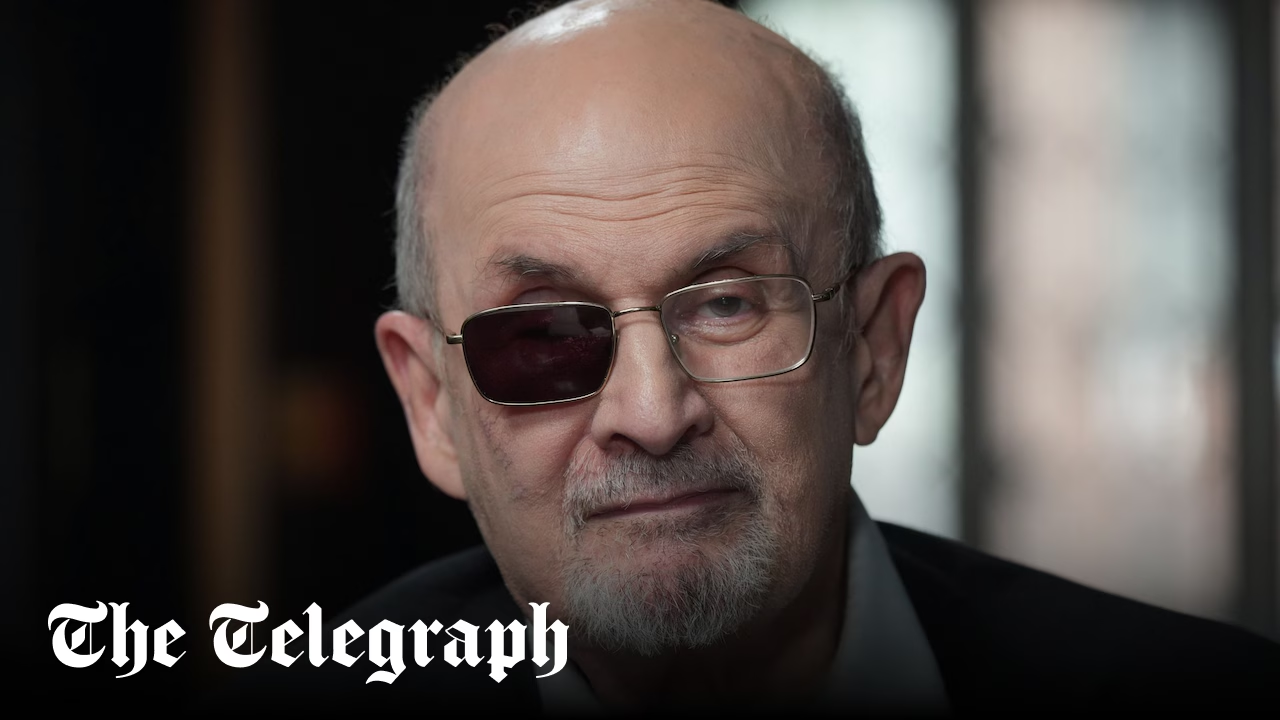Salman Rushdie seems preoccupied by death in his haunting fiction comeback

Rushdie later said that Midnight’s Children was “in conversation” with Forster’s A Passage to India – and now that conversation resumes, sort of. Having woken up dead, Arthur talks to an Indian student about being a man out of time (in more ways than one) who has wrongs to right. Again, the idea of an older author with stuff still to do feels autobiographical – and so, without wanting to get too amateurishly psychological, do the parallels between returning after death and recovering from a near-fatal stabbing.
The central trio of longer stories is completed by “Oklahoma”, which reaches its aforementioned climax via references to Kafka, Goya, Bosch, Joyce, Calvino and more. It’s rather effortful, but intriguing. It also contains what may be the most direct of The Eleventh Hour’s ruminations on approaching death, with one of the story’s many narrators writing that “the day came… when the entire generations of those who went before had taken their leave and there was nobody standing between my own generation and the yawning patient grave.” The same narrator then wonders whether you should face the end of life “serenely or with rage”, before deciding it should be a bit of both.
Judging from this collection, it’s an opinion that Rushdie shares. In fact, he dramatises it in the opening story, “In the South”, which sees two elderly neighbours, locked in “quarrelsome intimacy”, take opposing views. The story moves deftly from the comic to the affecting, albeit without ever quite taking off. And the book concludes with the equally short “The Old Man in the Piazza”, an entertaining and winningly heartfelt tale in which the allegory – a familiar Rushdie message about the dangers of certainty and the desirability of disagreement – is so pronounced as to be possibly too on-the-nose.
The traditional adjective applied to short-story collections, as to TV sketch shows, is “patchy”. But in The Eleventh Hour, if there’s patchiness, it extends only from the pretty good, via the maddening-yet-memorable, to the properly great. If Rushdie is correct that one effect of old age is to turn you into a ghost, then long may he continue to haunt us.
★★★★☆
The Eleventh Hour is published by Jonathan Cape at £16.99. To order your copy at £16.99, call 0330 173 0523 or visit Telegraph Books





